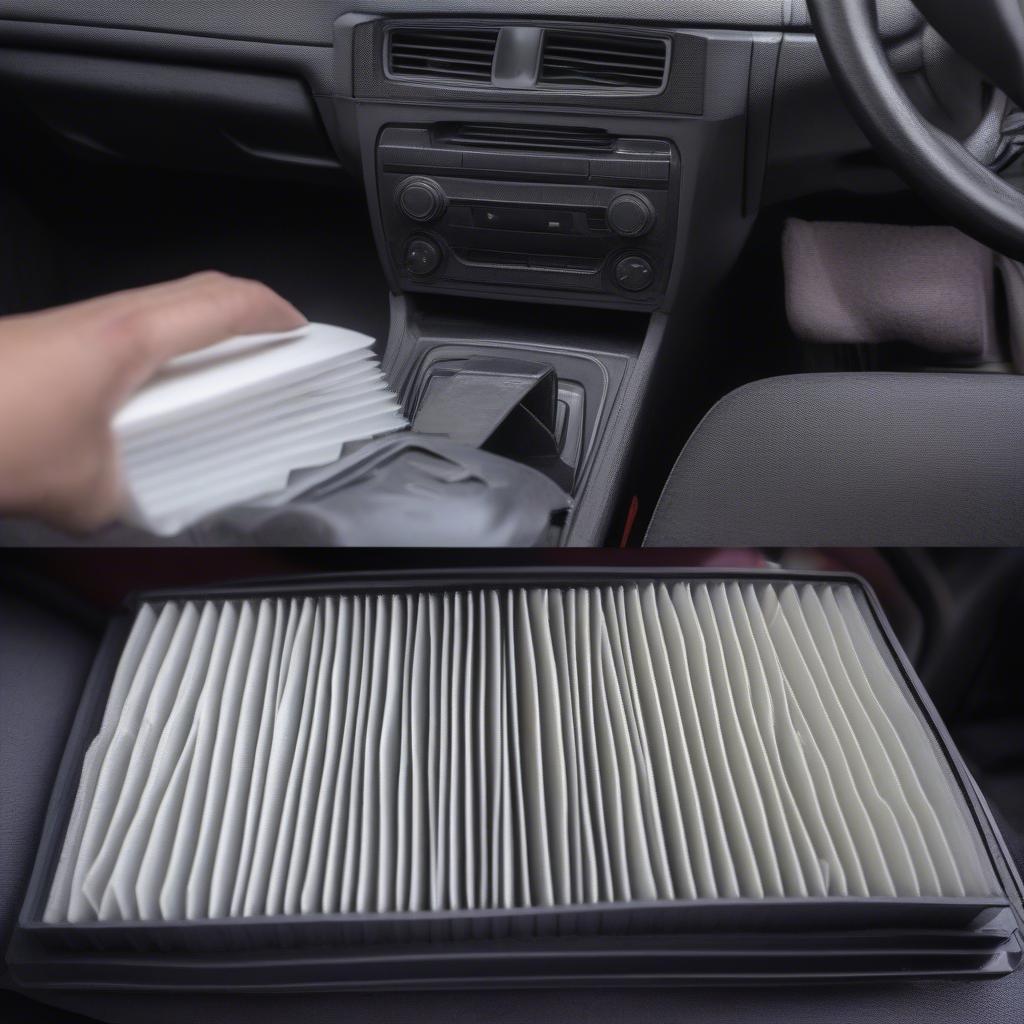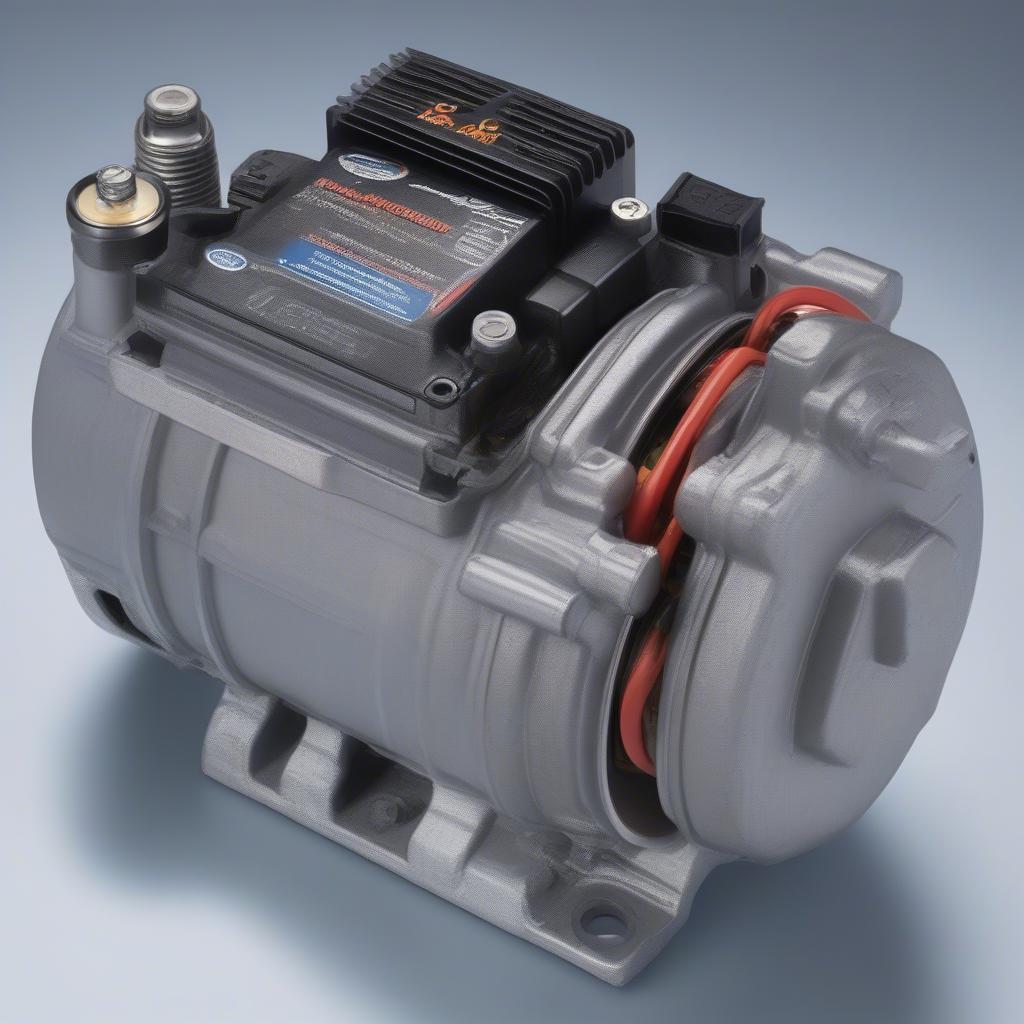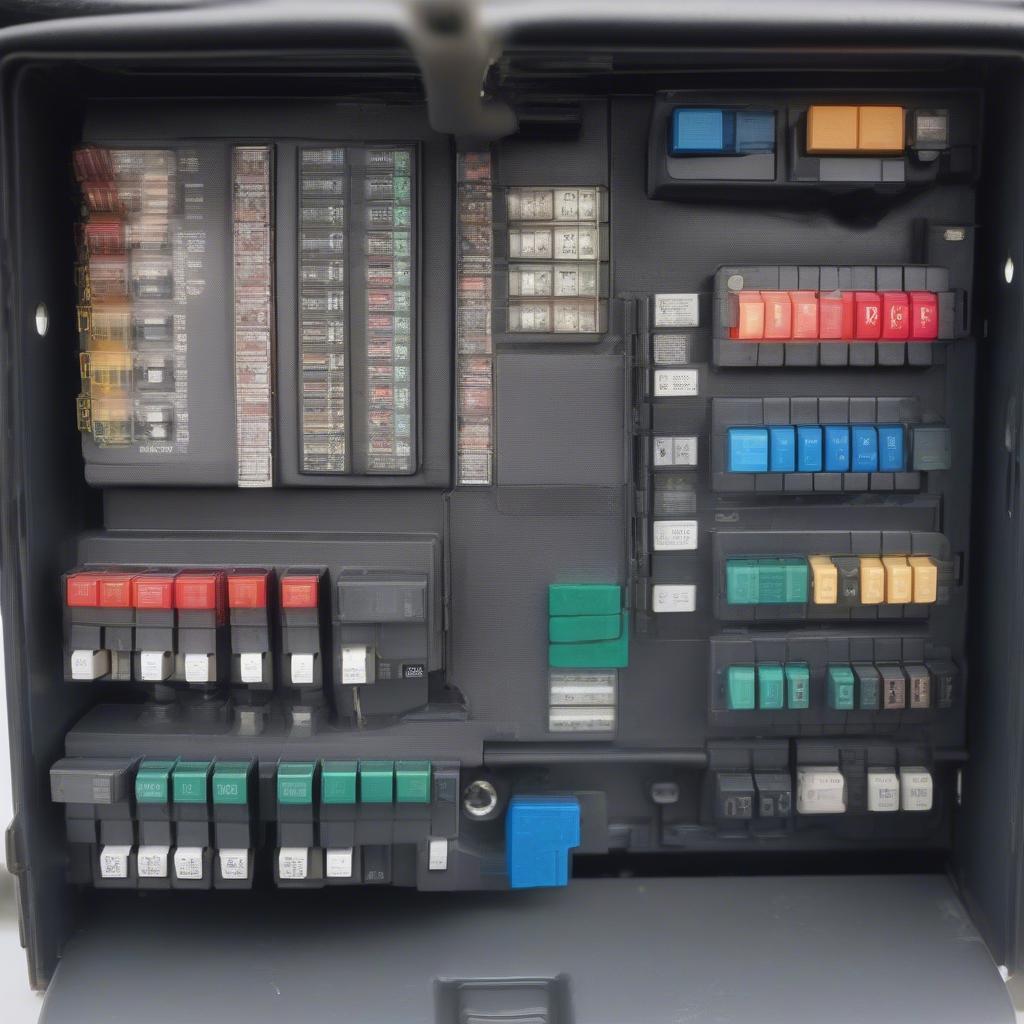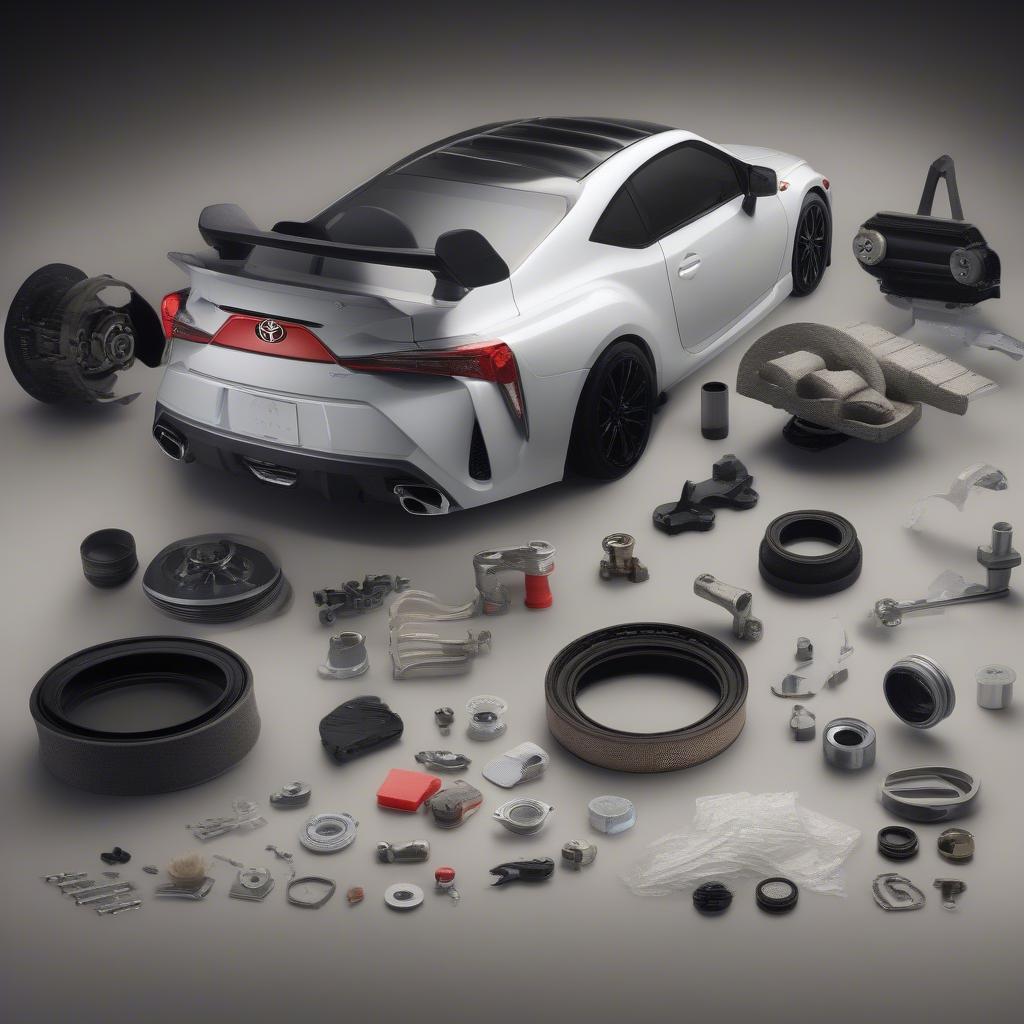Car Air Conditioners are essential for comfortable driving, especially in hot and humid climates. Understanding how your car’s AC system works, how to maintain it, and when to seek professional help can save you money and ensure a pleasant driving experience. This guide will explore everything you need to know about your car air conditioner, from basic operation to advanced troubleshooting.
Understanding the Basics of Your Car Air Conditioner
Your car’s AC system is more than just a fan blowing cold air. It’s a complex system of components working together to cool and dehumidify the air inside your vehicle. These components include the compressor, condenser, evaporator, expansion valve, and refrigerant. The refrigerant, a special fluid, absorbs heat from the cabin and releases it outside, effectively cooling the air.
The compressor pressurizes the refrigerant, raising its temperature. This hot, high-pressure refrigerant then travels to the condenser, located at the front of the vehicle. The condenser releases the heat absorbed from the cabin to the outside air, cooling the refrigerant and turning it into a high-pressure liquid.
Next, the refrigerant passes through the expansion valve, which reduces its pressure and temperature. This low-pressure, low-temperature refrigerant then enters the evaporator, located inside the cabin. The evaporator absorbs heat from the cabin air, cooling the air and blowing it into the vehicle through the vents.
Maintaining Your Car Air Conditioner for Optimal Performance
Regular maintenance is crucial for keeping your car air conditioner running efficiently. Simple steps like checking the refrigerant levels, cleaning the cabin air filter, and inspecting the system for leaks can prevent costly repairs down the road.
Checking Refrigerant Levels
Low refrigerant levels are a common cause of poor AC performance. If you notice your AC isn’t blowing as cold as it used to, it might be time to check the refrigerant. You can purchase a DIY refrigerant recharge kit, but it’s often best to consult a professional.
Cleaning the Cabin Air Filter
A dirty cabin air filter can restrict airflow, reducing the efficiency of your AC system. Replacing the cabin air filter regularly, typically every 12,000 to 15,000 miles or as recommended in your owner’s manual, can improve airflow and air quality.
 Thay thế bộ lọc gió điều hòa
Thay thế bộ lọc gió điều hòa
Inspecting for Leaks
Leaks in the AC system can lead to refrigerant loss and reduced cooling capacity. Regularly inspecting the hoses and connections for signs of leaks can help you identify and address problems early.
Troubleshooting Common Car Air Conditioner Problems
While regular maintenance can prevent many issues, sometimes problems still arise. Understanding some common car air conditioner problems can help you diagnose the issue and determine the best course of action.
Weak Airflow
Weak airflow from the vents could indicate a clogged cabin air filter, a faulty blower motor, or a problem with the ductwork.
Warm Air
If your AC is blowing warm air, the problem could be low refrigerant, a faulty compressor, or a problem with the expansion valve.
Strange Noises
Unusual noises coming from the AC system, such as hissing, clicking, or grinding, could indicate a problem with the compressor, a leak, or a worn-out bearing.
 Máy nén điều hòa ô tô
Máy nén điều hòa ô tô
Why is my car AC not blowing cold air?
A car AC not blowing cold air could be due to several factors, including low refrigerant, a malfunctioning compressor, or a blocked condenser.
How often should I service my car AC?
It’s generally recommended to have your car’s AC system serviced every one to two years, or as recommended in your owner’s manual.
“Regularly checking your car’s AC system is like getting regular checkups at the doctor. It can prevent small issues from becoming big, expensive problems.” – Anh Tuấn, Automotive Technician
“A well-maintained car air conditioner not only keeps you comfortable but also improves fuel efficiency by reducing the load on the engine.” – Chị Lan, Automotive Engineer
Conclusion
Your car air conditioner is a vital component for a comfortable driving experience. By understanding how it works, performing regular maintenance, and addressing issues promptly, you can keep your car cool and comfortable all year round. Remember to consult with a qualified technician for any complex repairs or if you’re unsure about how to handle a specific problem regarding your car air conditioner.
FAQ
- How does a car air conditioner work?
- What are common signs of car AC problems?
- How can I improve my car AC’s efficiency?
- When should I replace my cabin air filter?
- What is the role of refrigerant in a car AC system?
- How can I tell if my car AC needs refrigerant?
- What are some common causes of car AC leaks?


